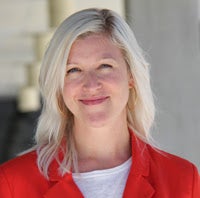Kids’ waistlines continue to grow
September is National Childhood Obesity Month. About 17 percent of children in the United States are obese, according to federal health statistics. Children who are obese face more bullying and can be excluded from friendships. Obesity can take a mental, social and even physical toll on growing kids. USC faculty are available to discuss how sugar intake and diet affect the brain, how forming healthy habits early should be a priority and how a person’s support network can impact weight gain or loss.
Contact: Zen Vuong, (213) 300-1381 or zvuong@usc.edu
Teach children healthy habits before kindergarten 
“One in five children in the U.S. enter school overweight or obese. Many kindergarteners with normal weight end up gaining too much weight during elementary school.
“It turns out excess weight during early childhood is not just a passing phenomenon that disappears once growth spurts occur. Excess weight in childhood substantially increases the risk of remaining obese into adolescence and adulthood. Because obesity is linked with serious health consequences, addressing excess weight gain in early childhood should be a top priority.
“The emphasis of most early childhood programs is on cognitive and socio-emotional readiness. Childhood obesity may decrease if entering school ‘ready to learn’ included the formation of good habits that promote healthy body weight. Reinforcing healthy behaviors in early childhood can create wholesome habits as children transition through adolescence and adulthood.”
Ashlesha Datar can discuss the role that school, neighborhood and family can play in childhood obesity. She is a senior economist and director of the Program on Children and Families at the USC Dornsife College of Letters, Arts and Sciences.
Contact: (213) 821‑2787 or adatar@usc.edu
Americans devour twice the recommended amount of sugar 
“Americans consume an average of 22 teaspoons of sugar sweeteners every day, which is over twice the recommended limits set by the American Heart Association and the World Health Organization.
“Excessive sugar consumption has been linked to obesity, Type 2 diabetes and heart disease. The abundance of high-sugar foods and food cues in our environment (such as the sight or smell of chocolate chip cookies) can prime us to eat beyond our energy needs by stimulating brain pathways that control reward, attention and motivation.
“Studies in animals suggest that diets high in sugar affect these brain pathways and can induce sugar craving-like behaviors. Understanding how sugar sweeteners affect brain pathways and eating behavior in people is critical to our efforts to reduce the rising rates of obesity, Type 2 diabetes and heart disease.”
Kathleen Page is an endocrinologist specializing in diabetes and childhood obesity. She is an assistant professor of medicine at the Keck School of Medicine of USC.
Contact: (323) 442‑2804 or kpage@usc.edu
Memory and cognition 
“Emerging findings reveal that excessive consumption of sugar and high-fat foods during childhood can have detrimental effects on memory and cognition. For example, the hippocampus, a brain region that helps people remember autobiographical events and navigation routes, appears to be particularly vulnerable to early life consumption of unhealthy food and drink.”
Scott Kanoski can discuss how the brain is affected by overeating, weight gain and obesity. He is an assistant professor of human and evolutionary biology and neurobiology at the USC Dornsife College of Letters, Arts and Sciences.
Contact: (213) 740‑2495 or kanoski@usc.edu
Obesity does not exist on an island 
“Obesity is not an individual problem, even though we often think of balancing eating and exercise as something that individuals do themselves. Our social networks influence what we eat, if we are active and, ultimately, how we manage our weight. The ‘norms’ in our day-to-day social networks, consciously and unconsciously, foster our views about what degree of overweight is healthy and normal.
“We have to tackle obesity prevention collectively in families, peer groups and organizations. We have to create social networks that support healthy eating, activity and weight.”
Kayla de la Haye can discuss how to apply social network science to promote health and to prevent disease. She is an assistant professor of preventive medicine at the Keck School of Medicine of USC.
Contact: (323) 442-8228 or delahaye@usc.edu
###



